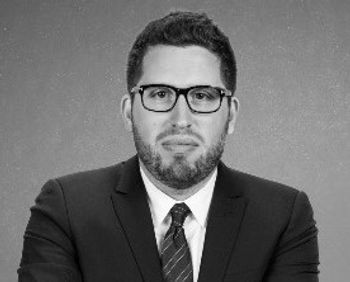MARSCHALL: Do not ignore the role social class plays in higher education’s broken culture
At the center of Harvard University's nightmare, as well as the decisions to hire leaders unfit to fight anti-Semitism, is its board of trustees, many of whom are affiliated with the Obama administration.
The Trump administration’s string of federal funding freezes against elite American universities has turned the spotlight on their respective boards of trustees.
The now-tarnished Harvard University, which is one of the most hostile campuses for Jewish students, is borrowing $750 million as a stopgap measure to cover the $9 billion it has lost in federal funding. At the center of Harvard’s fiscal and reputation nightmare, as well as the decisions to hire leaders unfit to fight anti-Semitism, is its board of trustees, many of whom are affiliated with the Obama administration.
Though Trump’s funding freezes appear to be having an effective corrective effect in higher education, university trustees still have an outsized role in national political debates, and we will not heal from anti-Semitism and broken schools if we misunderstand them.
For the most part, university trustees are not political ideologues or even leftists. Assuming trustees’ politics match those of the professors they support is a common misconception borne by a fundamental failure to understand higher education’s anti-Semitism crisis.
While campus anti-Semitic activism results from radical leftist ideology, and the debate over how to fix the problem is a political one, the reason why universities failed to respond accordingly after October 7 (and still will not without the threat of financial disaster) is also a matter of class. Social class, to be precise.
[RELATED: The book higher ed must read to do better on anti-Semitism: REVIEW]
University trustees are successful and wealthy individuals in business or entertainment with prior connections to their universities. As individuals, they are the remnants of America’s aristocratic Nelson Rockefeller Republicans – those lukewarm socially liberal, fiscally “conservative” left-of-center moderates – who preserve their privileged position in American society collectively as stewards of the now-progressive elite sensibility and cohort that dominate media, higher education, and the Obamas’ social diaries.
“All members of a certain class, you’ll notice,” the fictionalized Margaret Thatcher remarks of her ineffective cabinet in Netflix’s The Crown. In Thatcher’s estimation, these ministers, victims of their superfluous gentility, are not up to the mark to make sweeping free-market reforms because their class position similarly inhibits their will to do the uncomfortable for what’s right.
Class is the unseen dimension affecting how people in power respond publicly to social problems in our culture. No matter your beliefs on social and economic policies, it is there as a complex force in our culture and political process.
Wealth is necessary but insufficient for membership in the progressive elite. That misguided liberal conviction in the humanity of those who hate us – and that leftists are just more impassioned liberals who don’t actually want to overthrow the socio-economic order – signifies its members’ status more than whether the money is new or old.
The progressive elite’s self-anointed genteel social ‘sophistication’ repels reality from penetrating its fuzzy understanding of human nature; it abets its members’ desire to not see what they do not want to look for in other people.
[RELATED: MARSCHALL: Students cannot cope with Trump’s victory over Harris. Blame the teachers.]
Trustees’ social standing, which relegates politically non-compliant affluence to the peripheries of power in American social institutions, consequently arrests their individual agency to act on their better judgments against the staff and faculty who have brought once esteemed universities down to ruin in heaps of anti-Semitic and anti-American revolutionary fervor.
That is why viewpoint diversity matters in American institutions’ leadership positions, particularly at universities.
University boards of trustees may have evaded the spotlight, but they are culpable for letting criminal terrorism supporters flourish on college campuses. Successful businessmen may have street smarts, but they always lack the intellectual chops to pierce through radical professors’ jargon and see them for the threat they are as instigators of students’ radical activism and violence.
Evidently incapable of controlling radicals and Marxists, university trustees foolishly think they can use reasonable rhetoric to appeal to activists’ better senses.
That is why universities failed to enforce anti-discrimination policies with force after October 7, why Columbia University has had one failed president after another since the attacks, and why these schools cannot muster the resolve to rein in the dogmatic influence that radical professors have on their undereducated students.
Universities need a new class of leaders. They need trustees who neither deny the dangers that anti-Semitism and anti-American sentiment pose to everyone nor cling to political convictions as they refuse to see the protesters and extremists for who they truly are.
“If this country really is to turn the corner,” The Crown’s Thatcher continues in response to her ministers’ intransigent opposition to her bold socio-economic reforms, “it needs to change fundamentally top to bottom.”
Editorials and op-eds reflect the opinion of the authors and not necessarily that of Campus Reform or the Leadership Institute.

